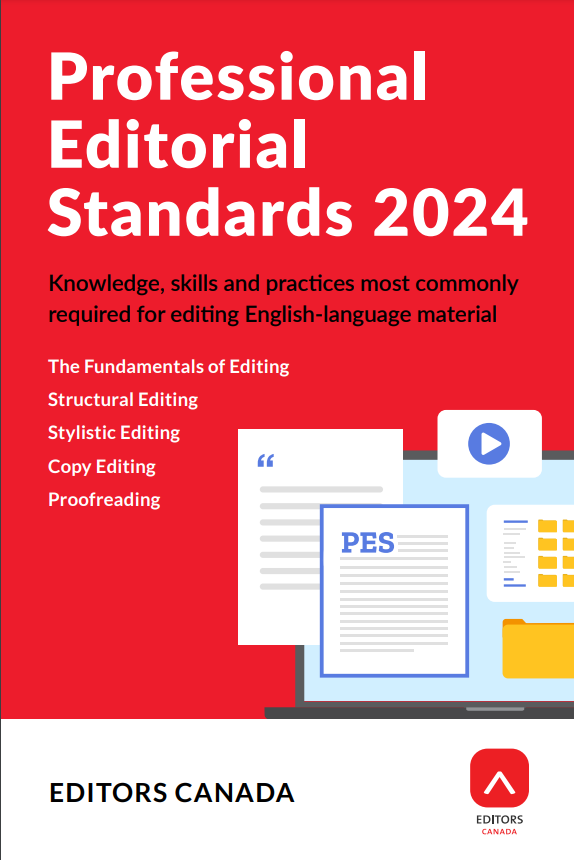Editors Canada's updated Professional Editorial Standards move our profession forward.
Spooks, zombie rules, and the singular “they”
 ’Tis the season for spooks, so what better time to talk about zombie rules?
’Tis the season for spooks, so what better time to talk about zombie rules?
First, a little background. The term “zombie rules” was coined by Stanford linguistics professor Arnold Zwicky in a 2005 blog post:
In the process of dissemination, [a grammar rule makes] its way into textbooks and manuals for writers. Once there, the prescription might well go on forever as a “zombie rule”; no matter how many times, and how thoroughly, it is executed by authorities . . . it continues its wretched life-in-death in style sheets and grammar checkers and the like.
In a 2013 Baltimore Sun blog post, journalist, copy editor, and teacher John E. McIntyre provided a useful list of zombie rules, which he also referred to as “bogus rules and superstitions.” He broke the list into three categories:
- The “fully exploded” included “long discredited superstitions” like no split infinitives, no prepositions at the end of sentences, and no sentences that begin with “and,” “but,” or “or.”
- The “not yet dead” included “pointless time-wasters” like refusing to use “hopefully” in the sense “it is hoped that” or “data” as a singular noun, or observing a distinction between “over” and “more than.”
- “Room for judgment” included shunning the passive voice, maintaining a distinction between “which” and “that,” and refusing to use “they” as singular.
The list has evolved in the three years since McIntyre published it. For example, the “over/more than” distinction moved from the “not yet dead” category to the “fully exploded” when the editors of the Associated Press (AP) Stylebook announced at the American Copy Editors Society (ACES) 2014 conference that they now considered both “more than” and “over” to be acceptable in all uses to indicate a greater numerical value (e.g., more than 2,000 zombies were spotted lurking in dark alleys; over 2,000 zombies were spotted lurking in dark alleys).
The uproar that ensued was still audible at the 2016 ACES conference in Portland, Oregon, last April. But the star zombie rule in Portland was the prohibition of singular “they,” also known as the “epicene they.” (In case you’re wondering, “epicene” refers not to a period in the Earth’s history but to having characteristics of both sexes or neither sex; in grammar, it denotes a word that has one form to indicate either sex.)
WCEA partner Frances Peck provides an excellent survey of the pronoun problem, with a Canadian focus, but here’s a brief introduction. Most of us regularly use the singular “they” when we are speaking: “When a ghost knocks at your door, ask if they need gluten-free or regular treats.” Until recently, however, contemporary guides like The Chicago Manual of Style have told us that the singular “they” is not appropriate in formal writing. So writers and editors have struggled to find ways around the once-standard all-inclusive “he,” using the sometimes impossibly awkward “he or she” or “s/he,” or even more awkwardly alternating “he” and “she.” A variety of gender-neutral inventions have been proposed since the 1970s, including “e,” “ey,” “xe,” “ze,” and “zhe.” But the experts tell us that the singular “they,” which would solve so many problems, has in fact been used in formal writing for centuries. (British blogger Tom Freeman summarizes the arguments for and against in his Stroppy Editor post, Everything you ever wanted to know about singular “they.”)
In December 2015, changes to the Washington Post’s style manual included acceptance of the singular “they.” John E. McIntyre celebrated the Post’s decision, in both print and video. And the buzz about the demise of this zombie rule continued in Portland in April.
Old habits die hard, though. One could look at McIntyre’s list of zombie rules and recategorize them according to how easy or difficult it is to let them die. For example, I have no trouble at all starting sentences with “and,” “but,” or “or,” as you might have noticed. I still hesitate ever so slightly when using “over” instead of “more than.” And, at the risk of revealing my inner pedant, using the singular “they” affects me like fingernails on a blackboard. But it’s time to face down the zombies. As McIntyre says, “The tide is running against you, and it’s coming in. You are being assimilated. Resistance is futile.”
Which zombie rules are spooking you?
Photo by wallyir at Morguefile.com



